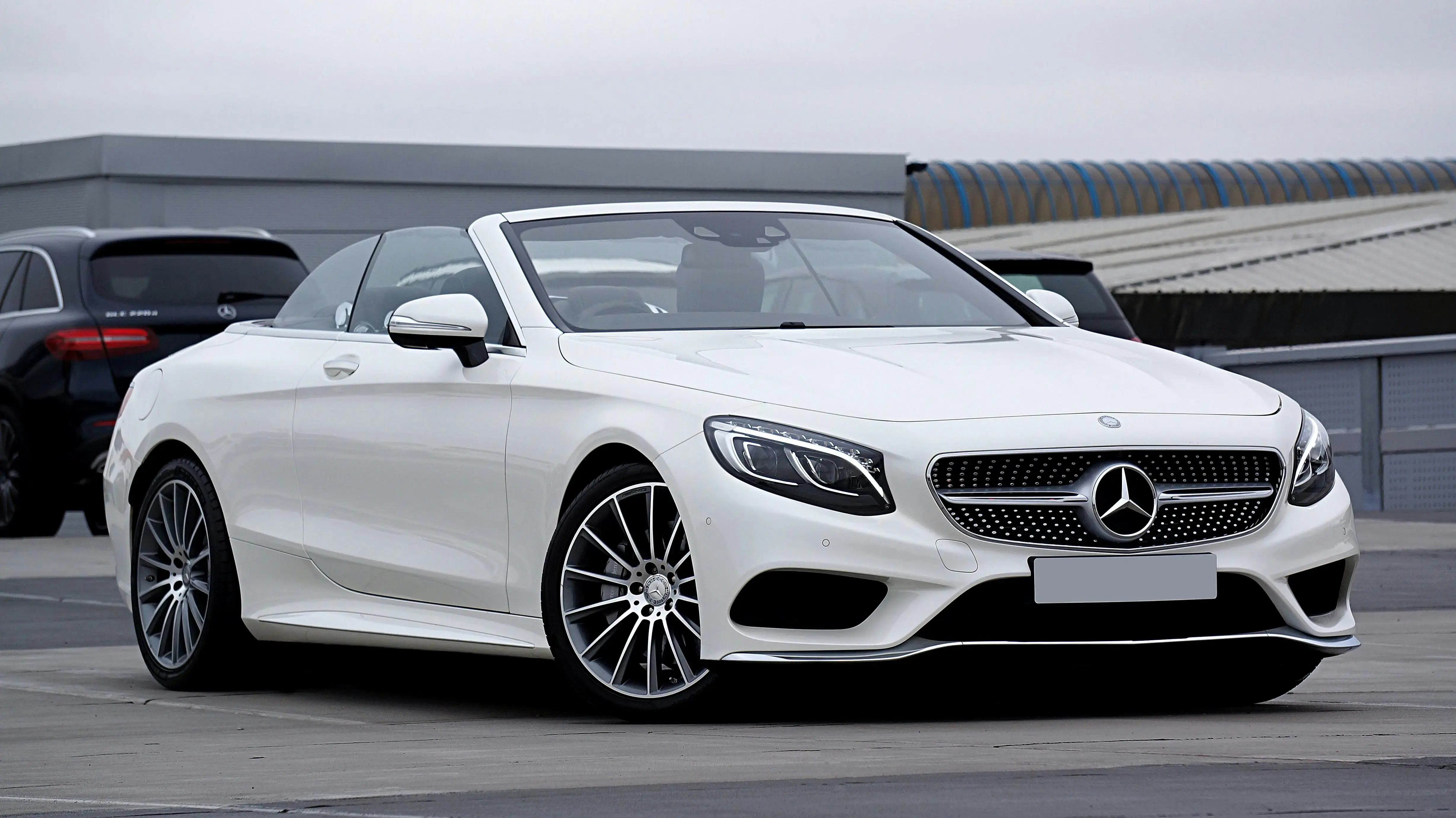How Much Does It Cost to Import a Car from France to the US in 2025?
France offers a rich mix of classics (Citroën, Peugeot, Renault), modern Alpine performance, and ultra-luxury marques. Since April 2025, tariff treatment can significantly affect total cost depending on origin and HTS classification—not all vehicles are impacted the same way.
Why a full cost breakdown matters
Accurate planning means itemizing tariffs/duties, compliance, and fees. This guide covers 25-year classics that qualify for established tariff exemptions and modern vehicles that may need EPA/DOT modifications.
Critical update on 2025 tariffs
-
Base duty (most passenger cars): 2.5% (HTS 8703.x).
-
10% baseline tariff (2025 update): May apply in addition to the base duty depending on origin and HTS classification.
-
Section 232 (finished vehicles): 25% for non-exempt countries. Trade-agreement partners (e.g., USMCA) can be exempt if rules-of-origin are met. For EU-origin (including France), applicability can vary with current policy—confirm at entry.
-
25-year exemption: Vehicles 25+ years old, when properly coded under HTSUS 9903.94.04, are exempt from the 25% Section 232 tariff and typically pay only the 2.5% base duty.
What this means: Depending on origin/content and HTS coding on CBP Form 7501, duty load could be 2.5%, 12.5% (2.5%+10%), or up to 37.5% (2.5%+10%+25%).
Current shipping costs from France to the U.S.
-
Ocean freight (Le Havre/Marseille → New York): ~$2,750 with ~18-day transit (typical, not guaranteed).
-
Cost variability: Fuel surcharges, congestion, equipment availability, seasonality, and carrier adjustments can move rates materially.
French port options & routing
-
Primary: Le Havre (frequent U.S. services, competitive rates, mature vehicle handling).
-
Alternatives: Marseille (south; fewer direct U.S. sailings), Nantes–Saint-Nazaire (often requires transshipment via N. Europe).
-
U.S. destinations: New York/New Jersey usually offers the best time/cost. West Coast adds ~$500–$800 and 7–10 days.
Method & optimization
-
Containers: Highest protection; single-vehicle or consolidated (shared) options that can reduce per-car cost in optimal multi-vehicle consolidations (often up to ~50%).
-
Special handling: Climate-controlled/enhanced security adds $1,000–$3,000.
2025 duties & established exemptions (France)
French-origin vehicles follow the U.S. framework above; actual tariff outcome depends on origin, classification, and exemptions.
Tariff structure (effective April 2025)
-
Base duty (passenger cars): 2.5% (HTS 8703.x).
-
10% baseline tariff: May apply in addition to base duty (origin/HTS dependent).
-
Section 232 (finished vehicles): 25% for non-exempt countries.
-
25-year exemption: HTS 9903.94.04 exempts qualifying classics from the 25% Section 232; the 2.5% base duty typically still applies.
Light trucks (“Chicken Tax”)
Certain light-truck classifications (often HTS 8704) are subject to a 25% Chicken Tax. Whether additional tariffs (10% baseline and/or 25% Section 232) apply is not automatic and must be confirmed by HTS coding on CBP Form 7501.
Other notes
-
Timeline: Section 232 for finished vehicles applies to entries on/after April 3, 2025; automotive parts enforcement began May 3, 2025 (may affect retrofit costs).
-
Documentation: Keep complete records for five years; ensure Form 7501 lists the base HTS and any exemption codes (e.g., 9903.94.04).
-
Avoid speculation: Do not cite unimplemented “EU tariff ceilings” (e.g., 15%) or “U.S.-content proration via Form 28/29” as ways to lower 232—stick to proper HTS/RoO treatment reflected on Form 7501.
Mandatory processing fees (typical)
-
Harbor Maintenance Fee (HMF): 0.125% of the import entry’s value as determined for HMF purposes (valuation rules can differ—confirm with your broker).
-
Merchandise Processing Fee (MPF): 0.3464% of entered value; min $31.67 / max $634.62.
-
Customs bond: Common costs are usually $125–$650 depending on bond type/vehicle value.
Real-world duty scenarios (France)
Classic French sports car (€35,000 / $38,000) — 25-year exemption qualified
(Pick a model ≥25 years old; e.g., 1998 or older)
-
Shipping (to NY): $2,750 (est.)
-
Duty (2.5%): $950 (Section 232 exempt via 9903.94.04)
-
HMF (~0.125%): ~$47.50
-
MPF (~0.3464%): ~$131.32
-
Bond: ~$380
-
Total duties & fees: ~$4,259 (illustrative; exemption yields major savings)
Modern French performance/luxury (€80,000 / $87,000) — show three outcomes
-
Shipping (to NY): $2,750 (est.)
-
Scenario A (Base only): 2.5% = $2,175
-
Scenario B (Base + Baseline): 12.5% = $10,875
-
Scenario C (Base + Baseline + Section 232, non-exempt): 37.5% = $32,625
-
HMF/MPF/Bond (illustrative): HMF ~$109, MPF ~$301, bond ~$870
-
Note: Final treatment depends on origin, content, and HTS coding on Form 7501.
EPA/DOT compliance (France)
Vehicles under 25 years must meet U.S. standards or be modified by an RI/ICI.
-
EU differences: Lighting, emissions, and safety specs usually require U.S. retrofit.
-
French-specific systems: Hydraulic suspensions (Citroën), certain diesel families, and unique electronics can increase complexity.
-
RI availability: Some French performance/luxury models have RI pathways; obscure variants may not.
-
LHD benefit: French vehicles are LHD, avoiding costly RHD conversions.
Indicative RI costs
-
Lighting: $2,500–$6,000
-
Emissions: $5,000–$15,000
-
Safety systems: $3,500–$12,000
-
Cluster/speedo: $800–$2,000
-
Typical RI total: $11,800–$35,000 (vehicle complexity and retrofit kit availability drive variance)
ICI path (when RI not available)
-
EPA testing/certification: $20,000–$45,000
-
DOT compliance testing: $15,000–$40,000 (full crash testing is rare)
-
Admin/certification: $8,000–$20,000
-
Typical ICI total: $43,000–$105,000 (for very high-value/unique vehicles)
Additional cost considerations
-
Customs brokerage: $450–$900 (complexity dependent).
-
French pre-purchase inspections: $350–$900.
-
Collection to port (France): $300–$800.
-
U.S. delivery: Typically $900–$1,200 (distance/equipment dependent).
-
State registration/taxes: Registration $100–$800 plus state/local sales tax; some states require extra inspections ($150–$500).
-
Transport coverage: International coverage typically 0.5–2% of vehicle value; optional climate-control/security increases apply.
-
EVs/Hybrids: Battery/ADR handling, charger compatibility, and high-voltage safety can add $1,500–$3,000 to logistics.
Complete French import cost examples
Mid-range classic (1998 Citroën Xantia Activa) — 25-year exemption qualified
-
Purchase: €18,000 ($19,500)
-
FR collection: $400 (est.)
-
Ocean freight (Le Havre→NY): $2,750 (est.)
-
Duty (2.5%): $487.50 (Section 232 exempt via 9903.94.04)
-
Processing fees (HMF/MPF): ~$95
-
Customs brokerage: $550
-
U.S. delivery: $900 (varies)
-
Estimated total: ~$24,182 (illustrative; exemptions apply)
Luxury modern (2020 Alpine A110 S)
-
Purchase: €75,000 ($81,500)
-
FR collection: $600 (est.)
-
Ocean freight (Le Havre→NY): $2,750 (est.)
-
Duty scenarios:
-
Base only 2.5% = $2,037.50
-
Base + baseline 12.5% = $10,187.50
-
Base + baseline + Section 232 (non-exempt) 37.5% = $30,562.50
-
-
Processing fees: ~$315
-
ICI/RI modifications (unique/performance est.): $55,000 (or adjust to RI if applicable for your model selection)
-
Customs brokerage: $850
-
U.S. delivery: $1,200
-
Estimated total: Varies widely by tariff scenario and compliance pathway.
For detailed cost calculations specific to your French vehicle import considering current tariff structures and compliance requirements, use our car import calculator to receive personalized estimates.
Cargo Damage Protection
Even with professional handling and secure loading, unexpected incidents can occur during international shipping. West Coast Shipping offers Cargo Damage Protection to safeguard your vehicle from potential loss or damage while in transit. This optional coverage provides peace of mind and ensures that, in case of unforeseen events, your investment remains protected.
This comprehensive protection covers various scenarios that standard shipping protection may not address, including damage during loading/unloading, weather-related incidents, and handling mishaps that can occur despite professional care. For valuable French vehicles, this additional protection represents a small investment relative to the potential financial exposure of shipping unique or rare automobiles internationally.
Professional French Import Services
West Coast Shipping specializes in French vehicle imports with comprehensive services designed to navigate complex requirements while identifying potential cost savings and exemptions.
Comprehensive French Import Support
Pre-Purchase Consultation: Expert guidance on French vehicle selection, market conditions, compliance requirements, and total cost analysis including potential tariff exemptions before purchase commitment.
French Market Expertise: Specialized knowledge of French automotive market, seller verification, vehicle history research, and negotiation support for optimal purchase decisions.
Tariff Exemption Assessment: Professional evaluation of potential duty reductions through ongoing trade negotiations, US content claims, or other applicable exemptions that may significantly reduce costs.
Specialized French Vehicle Services
Classic French Vehicle Expertise: Comprehensive knowledge of French automotive history, collector market values, and restoration considerations for classic Citroën, Peugeot, Alpine, and Renault models.
Compliance Pathway Optimization: Professional assessment of optimal compliance routes for specific French vehicles, potentially saving tens of thousands in unnecessary modifications or testing.
Documentation Management: Complete handling of all required paperwork including French export documentation, US customs forms, exemption applications, and state registration requirements with proper recordkeeping for five-year audit requirements.
Frequently Asked Questions About Importing Cars from France to the US
How much does it cost to import a French car to the US?
Totals depend on the duty scenario (base 2.5% only; base + 10% baseline = 12.5%; or base + baseline + 25% Section 232 = up to 37.5%), plus compliance and logistics.
-
Classic example (1998 Citroën Xantia Activa — qualifies for 25-year exemption): ~$24.2k all-in (e.g., ~$19.5k purchase + ~$2,750 ocean + ~2.5% duty + typical HMF/MPF, brokerage, and ~ $900 U.S. delivery).
-
Modern example (2020 Alpine A110 S, $81.5k purchase): about $143.7k – $172.2k depending on tariff scenario (includes ~$2,750 ocean, ~$55k compliance, typical fees):
-
2.5% duty: ~$143.7k
-
12.5% duty: ~$151.8k
-
Up to 37.5% duty (non-exempt Section 232): ~$172.2k
(A single mid-case of 27.5% duty lands around $164.0k. Final treatment depends on origin/content and HTS coding on CBP Form 7501.)
-
Do French cars need expensive modifications to be legal in the US?
-
Modern (<25 years): Plan roughly $11,800–$35,000 for RI-led EPA/DOT modifications (lighting, emissions, safety, cluster). Unique systems (e.g., Citroën hydraulic suspension, certain diesel families) can push costs higher or necessitate ICI work.
-
25+ years old: Typically no EPA/DOT modifications are required. When properly coded under HTSUS 9903.94.04, these vehicles are exempt from the 25% Section 232 tariff and usually pay only the 2.5% base duty.
Which French cars are worth importing to the US?
-
Classics: Alpine A110, Citroën DS, Peugeot 205 GTI, and Renault R5 Turbo often command strong interest and benefit from the 25-year exemption, making them more economical to import.
-
Modern/performance: Alpine A110 and ultra-luxury models (e.g., Bugatti) offer experiences unavailable in the U.S., but expect higher compliance and tariff exposure—budget using the three duty scenarios above.
How long does shipping take from France to the US?
Shipping from Le Havre (France's main port) to New York takes approximately 18 days and costs around $2,750. West Coast destinations add 7-10 days and $500-$800 in additional costs. Sharing a container with other importers can reduce shipping costs by up to 50%.
For comprehensive information about importing vehicles from other countries and comparing total costs across different automotive markets, visit our complete country-by-country import cost guide.
Get Your French Import Cost Assessment Today
Importing French vehicles to the United States in 2025 requires careful consideration of significantly increased tariff costs, potential exemptions, complex compliance requirements, and various additional expenses that substantially impact total investment.
Contact our French import specialists today to discuss your specific vehicle requirements and receive detailed cost breakdowns considering current tariff rates, potential exemptions, and compliance pathways. Our experienced team provides comprehensive support throughout the entire process, from initial French market consultation through final US registration and delivery.
You May Also Like
These Related Stories

How Much Does It Cost to Import a Car from Spain to the US in 2025?

How Much Does It Cost to Import a Car from the Netherlands to the US?

-093789-edited.png?width=220&height=79&name=wcs_final_logo_(1)-093789-edited.png)
